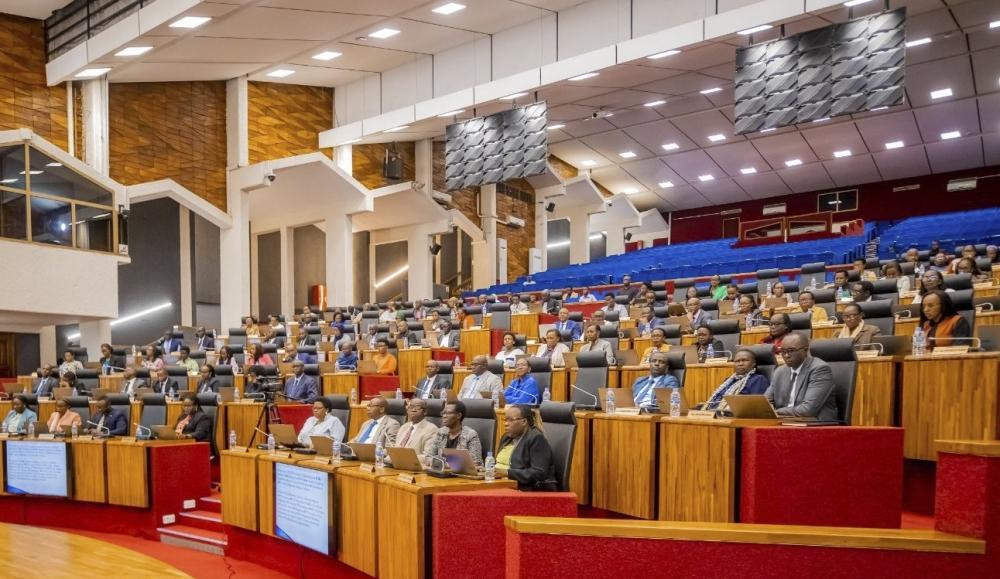Africa-Press – Rwanda. The government of Rwanda paid out Rwf 46.4 million in compensation for labour-related cases lost to employees during the 2023/2024 fiscal year, up from Rwf 38.8 million the previous year – a 19.5 percent increase, according to statistics from the National Public Service Commission (NPSC).
Speaking before a joint session of parliament on November 12, Barnabé Sebagabo Muhire, Acting Chairperson of the NPSC, said that in 2023/2024, some 22 government institutions were involved in 39 labour-related court cases against 45 employees.
“The government lost nine of these cases, resulting in payouts amounting to Rwf46.4 million, including Rwf30.6 million in damages and Rwf15.7 million in employee entitlements,” he added.
In contrast, the government won several other cases and was awarded Rwf8.2 million in legal costs, a fraction of what it had paid out in the cases it lost.
Sebagabo said that poor adherence to legal procedures and professional ethics among some public officials remains a major cause of the rising number of labour disputes that end up costing taxpayers’ money.
“We found that some managers make decisions that are not grounded in the law, while others fail to pay employee entitlements on time,” Sebagabo said. “This has led to avoidable lawsuits that continue to drain public resources.”
Lawmakers raised concern that while government institutions lose millions in courts, they recover little from cases they win.
MP Théoneste Bakundufite said some of the cases that reached court should have been prevented through internal dispute resolution mechanisms.
“Many of these cases could have been avoided if proper legal advice and human resource management were followed,” he noted.
The commission’s annual report shows that legal non-compliance extends beyond dismissals and labour rights to recruitment and promotion decisions.
According to the report, during the 2024/2025 fiscal year, the commission received 13,226 appeals related to recruitment and employment management. Of these, 5,431 appeals were found to have merit, while 7,676 had none.
The commission also carried out audits in 74 public institutions, including 27 districts and the City of Kigali, revealing recurrent mistakes such as failure to verify candidates’ qualifications, ignoring legal equivalence of degrees, and appointing panelists who did not meet required standards.
However, Sebagabo highlighted that the country’s public recruitment system remains competitive.
“In the 2024/2025 fiscal year, 1,387 vacancies were announced, attracting 1.1 million applicants. Out of these, 673,416 applicants met the minimum requirements,” he added.
However, only 106,360 of the qualified applicants sat for the recruitment tests. Of those, 8,783 passed and only 3,134 candidates were appointed.
Senator Frank Habineza urged that disciplinary measures be taken against those who ignore the commission’s recommendations.
“We need stronger legal enforcement,” Habineza said. “There should be a Prime Minister’s directive compelling public institutions to implement the commission’s recommendations. A compliance scorecard could help track institutions that respect the law and those that don’t.”
Similarly, MP Jeannette Uwababyeyi called for expanded training and awareness campaigns targeting not only human resource officers but also senior managers who approve personnel decisions.
“It is not enough to train human resources officers,” she said. “Leaders who make final decisions on employees must also be trained to understand labour laws and avoid decisions that expose the government to legal losses.”
MP Egide Nkuranga added that public lawyers stationed in various institutions should play a stronger advisory role in preventing unlawful administrative actions.
“Legal officers must be consulted before decisions are taken,” Nkuranga said. “Anyone whose decision leads to the government being sued should be held accountable.”
The new report also points to improvements in the handling of employee appeals and the implementation of its recommendations.
Out of 240 recommendations issued to various institutions concerning recruitment and staff management, 225 were implemented, while 15 remain pending.
For More News And Analysis About Rwanda Follow Africa-Press






